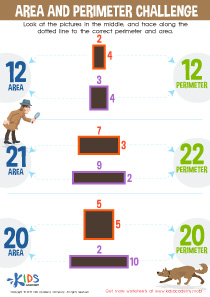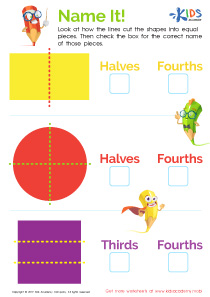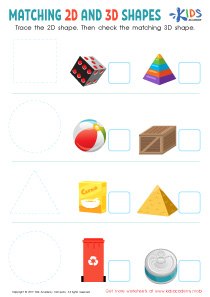Spatial awareness 2D Shapes Worksheets
3 filtered results
-
From - To
Enhance your child's spatial awareness with our engaging 2D shapes worksheets! Designed for early learners, these worksheets offer a variety of activities that help children identify, understand, and manipulate two-dimensional shapes. Through fun exercises, kids will improve their ability to recognize patterns and relationships in space, laying the foundation for stronger math skills. Our interactive approach fosters creativity and problem-solving, making learning an enjoyable experience. Suitable for home or classroom settings, our expertly crafted materials cater to young students and effectively support educators in the teaching process. Explore our collection today and watch your child's spatial intelligence flourish!
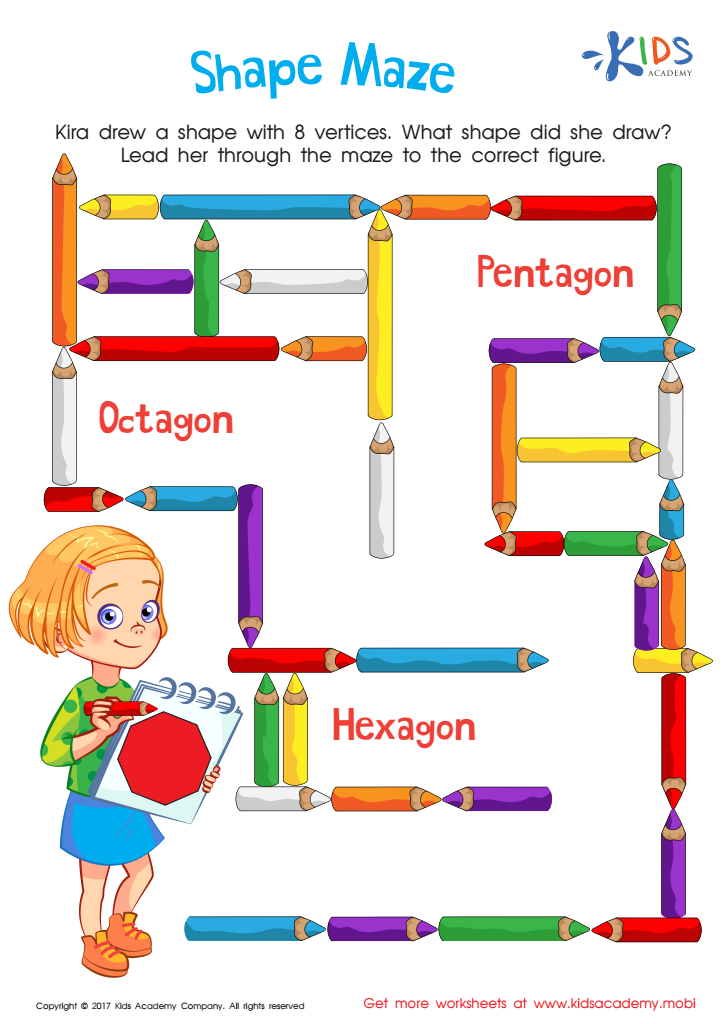

Shape Maze Worksheet
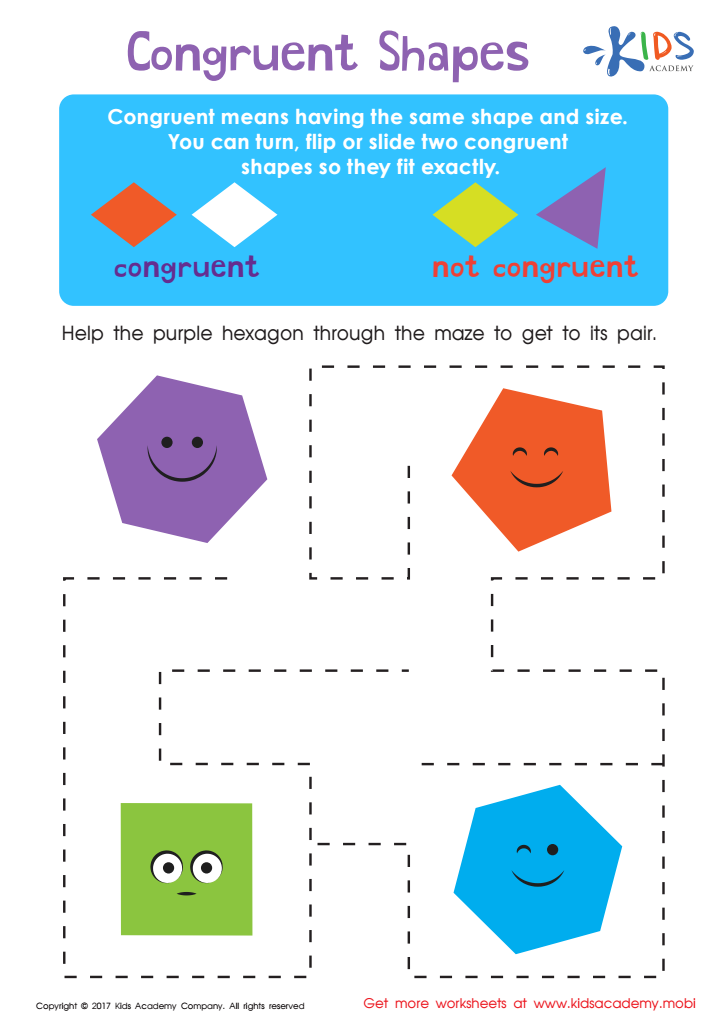

Congruent Shapes Worksheet
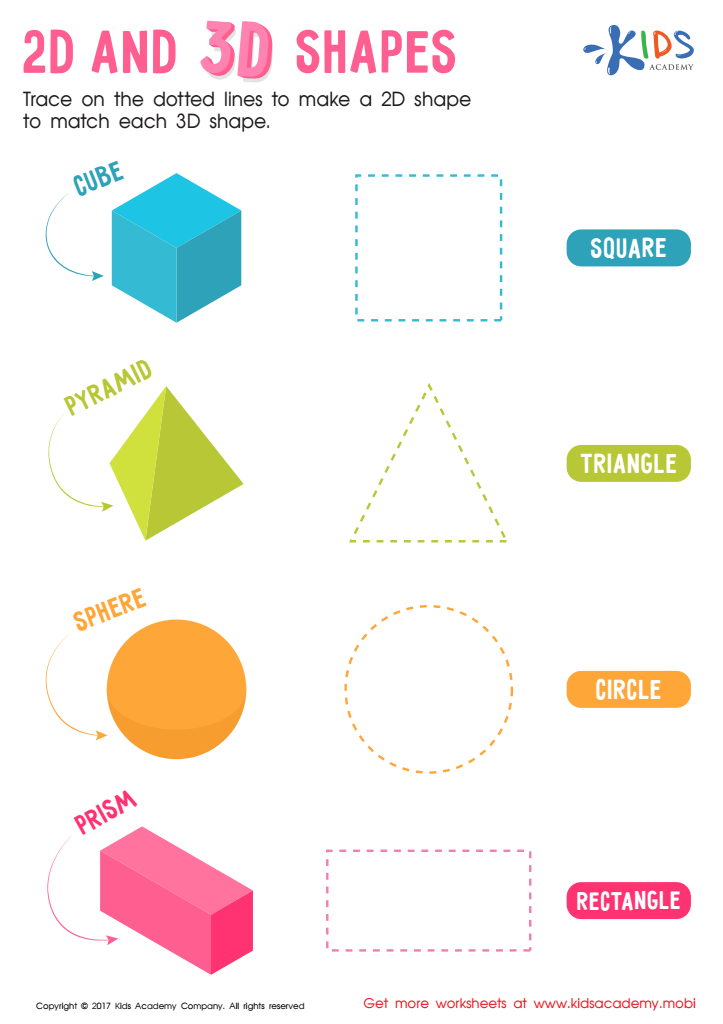

2D and 3D Shapes Worksheet
Spatial awareness and understanding 2D shapes are crucial aspects of early childhood development that parents and teachers should prioritize. Spatial awareness refers to the ability to recognize the position of objects in relation to oneself and each other. This skill lays the foundation for many skills children will use throughout their lives, including problem-solving, critical thinking, and creativity.
Understanding 2D shapes is essential for young learners as it influences their ability to grasp more complex mathematical concepts later on. Recognizing shapes helps children identify patterns, develop their reasoning skills, and is essential for fundamental mathematics like geometry. When children can visualize and manipulate shapes, they enhance their overall cognitive development.
Moreover, spatial awareness plays a significant role in enhancing fine motor skills and hand-eye coordination, which are crucial for tasks like writing, drawing, and even sports. Engaging with 2D shapes through play can also improve social skills as children work together and share ideas. Therefore, fostering spatial awareness and shape understanding in early education can lead to stronger academic performance, better everyday decision-making skills, and enriched interpersonal relationships as children grow. Encouraging shape exploration can be a fun and interactive way to support children's overall development.
 Assign to My Students
Assign to My Students










